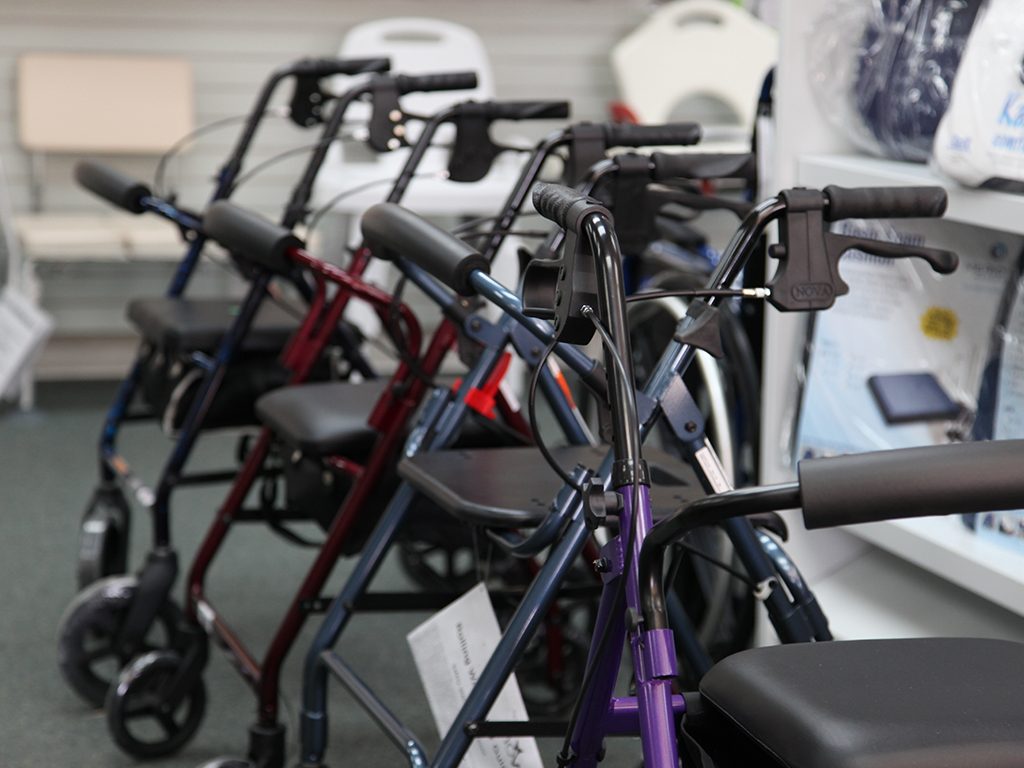It’s never easy to talk about incontinence. In fact, many choose simply not to talk about it – not with their healthcare providers or with their family. Incontinence, on its own, is not overly debilitating, however its effect on quality of life is massive and often very upsetting to the family of aging loved ones. Given that incontinence affects about 10% of the population, there are a lot of people quietly suffering while navigating these difficulties.
While there are many types of incontinence, individuals suffer from two forms – urinary and fecal. Urinary, at its worst, can involve a total loss of bladder control. The less common, though more devastating, fecal incontinence is the inability to control the bowel.
Incontinence in Seniors:
The elderly are far more likely to be incontinent. This can be a result of a medical condition that might be treatable. Medical causes of incontinence include:
- Urinary Tract Infections
- Constipation
- Diabetes
- Side effects of medication
- Weakened muscles as a result of stroke or disorders like Parkinson’s disease
- Simply aging
Incontinence aids for Seniors:
Fortunately, there are options for those who struggle with continence. Here are a few of our recommendations for helpful products that should make caring for a loved one a little easier:
- Open Back Pants: Clothing can occasionally contribute to incontinence issues. Sometimes, accidents occur due to clothes that a senior struggles to disrobe in time. For wheelchair users, open back pants are incredibly helpful and allow for easy toileting. After accidents occur, changing is incredibly easy as these pants slide on easily from a seated position and are perfect if the wearer is using incontinence pads or other aids that require regular changing. Check them out in women’s and men’s.
- Open Side Pants: Open side pants help eliminate the problem of not getting the pants off fast enough because they come off easily with the simple opening of the fastenings at the side. There are adjustable fastenings on both sides of the pant so it is up to the wearer if they would like to simply pull it down, or use the aids to unattached one side or both sides. This is great if the wearer is still dressing themselves independently or still living alone. The open side pants have an elongated lap, so if and when incontinence products are introduced, they can still wear these pants without it not fitting.
- Incontinence pads and pull-up pants: Sometimes referred to as ‘adult diapers’ (which does little to help the stigma around incontinence) these products draw fluids away from the skin and are moisture absorbent. Fit is of the utmost importance here – the pads need to be comfortable and discreet without causing any chafing or leakage. The drawback to pads is that they need to be monitored and changed frequently.
- Waterproof mattress protector: Often used in combination with an absorbent bed pad, the mattress protector sits on top of the mattress but under the sheets. It provides additional moisture protection and will truly save the mattress of anyone who deals with this issue.
- Absorbent bed pad: A bed pad provides a surface that will help keep the surface of your bed (or duvet) dry. These can be purchased as washable or disposable.
- Male Sheath: Similar to a condom, the sheath fits over the penis and catches the urine in a bag as it exits the body. This product is helpful when individuals want to go out for longer periods of time without access to a bathroom or for nighttime use.
Dealing with incontinence can be a touchy subject to address with someone. It’s important to remain objective at all times, and slowly approach the subject. Once you have a few items in place, such as a bed pad or adaptive clothing, you can begin to delve into the work of adult diapers. But make sure throughout the process you treat this like it isn’t a huge issue and that it happens to help with any embarrassment in the matter. Some tips on how to have this conversation are as followed:
- Make sure you are the one that should be handling the conversation. If there is someone better suited to have the conversation then let them take on the role. Don’t be afraid to talk to your own doctor about it, this way you’ll have all the facts to back you up so they can be more at ease with all of your knowledge.
- Make sure the timing is right. It’s never a good time, but it definitely can a very bad time. Try to find a good time to talk to them about it, whether it be during t.v hour or even the difference between morning and evening.
- Have just enough advice. This means to say have a few different tactics that you can use. If you notice the conversation going south, you can switch to a plan b. This could be for example, beginning to see if they will go see a doctor and get his advice, and if they don’t suggesting adaptive clothing as an in term solution.
Any suggestions we missed? Let us know in the comments!
